

Spring Festival, otherwise known as the Chinese Lunar New Year, is fast approaching, this year falling on Feb. 5. Spring Festival is the most important celebration in the Chinese calendar, and many people will travel across the country to spend time with their families, centered around the traditional reunion dinner on New Year's Eve.
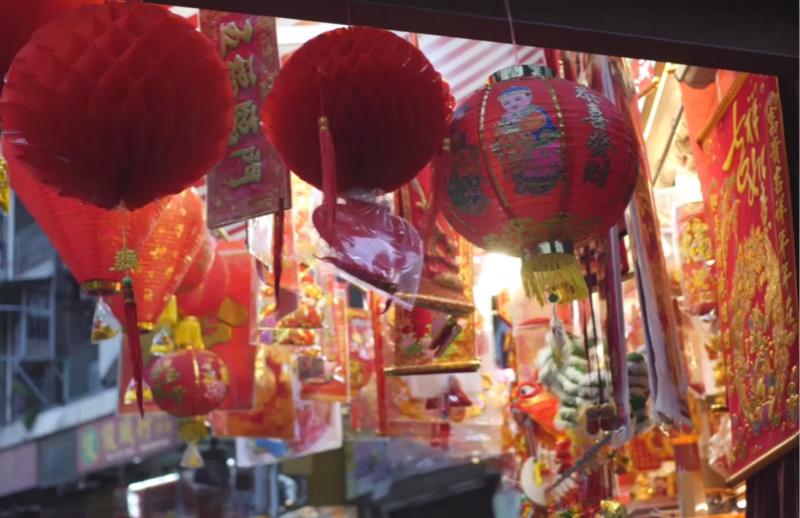
But, did you know there are some other Spring Festival traditions and superstitions that have been thought to bring luck through the ages? Although many of these traditions are no longer as widely believed today, it's interesting to look back through some of the superstitions surrounding Chinese New Year. Let's take a look!
Don't sweep up, or take out the bins, on New Year's Day
In fact, cleaning of any kind on New Year's Day is unlucky. Sweeping, or taking the bins out, on the first day of the new year is said to symbolize sweeping luck and wealth from the house.
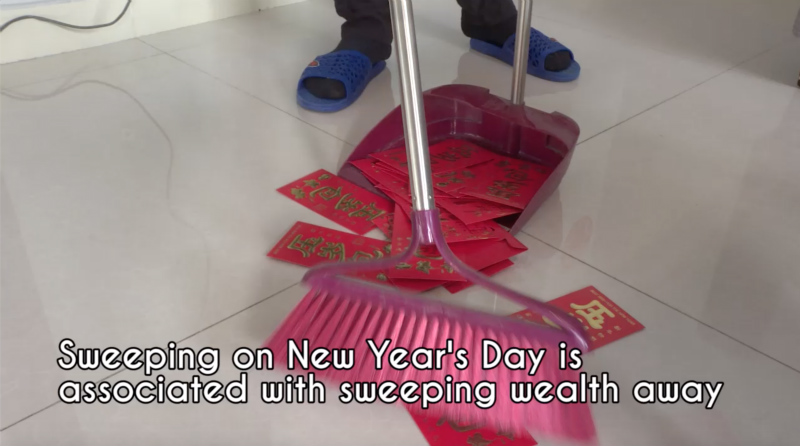
Do tidy up before midnight on New Year's Eve
That doesn't mean you can leave your house a mess! Cleaning up before midnight on New Year's Eve is said to help rid the home of the old and welcome in the new. It also helps to mop, scrub and dust away any remaining bad luck before the new year arrives.
Don't wash your hair on New Year's Day
The word for hair (发, fa) has the same pronunciation and character as facai (发财), which means 'to become wealthy.’ Therefore, washing your hair on New Year's Day could be seen as washing your fortune away. Pass the dry shampoo!
Do decorate your house
Over the festive period, you'll see amazing decorations all over China, and your house should be no exception. People tend to start decorating about ten days before the Chinese New Year, and as red is an auspicious color, you'll be able to find swathes of red decorations in plenty of time for Spring Festival.
Popular decorations include red lanterns, said to ward off bad luck, door couplets, which display wishes for the coming year, and the character 福 (Fu) which means good fortune.
Don't give a watch or clock as a gift
A clock is an unpopular gift at any time of year in China, as the phrase 'giving a clock' (送钟 sòng zhōng) sounds exactly like the Chinese words for 'attending a funeral ritual' (送终 sòng zhōng). A clock also symbolizes the running out of time, so is an especially lousy gift for seniors.
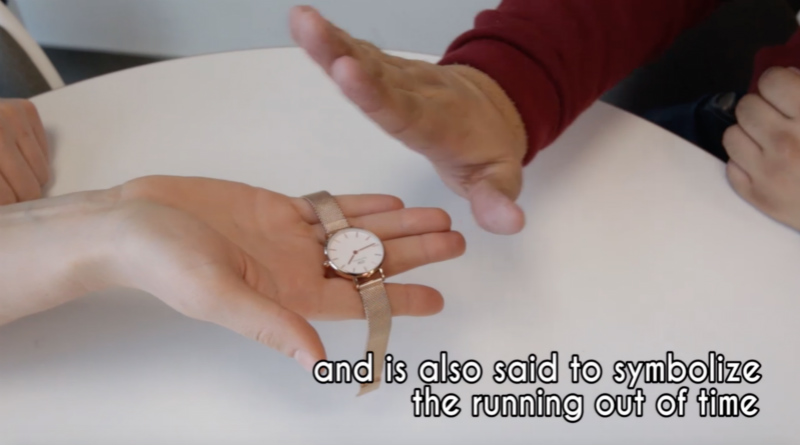
Do give Hongbao or fruit
Hongbao (红包), or red envelopes containing money, are a popular gift for adults to give children.
There are many gifts you can give friends, but fruit, especially tangerines or kumquat, are a safe bet. The word for tangerine (桔, ju) sounds similar to the Chinese word for luck (吉, ji), and you will often see oranges, tangerines, and kumquats displayed around the house during the Lunar New Year.
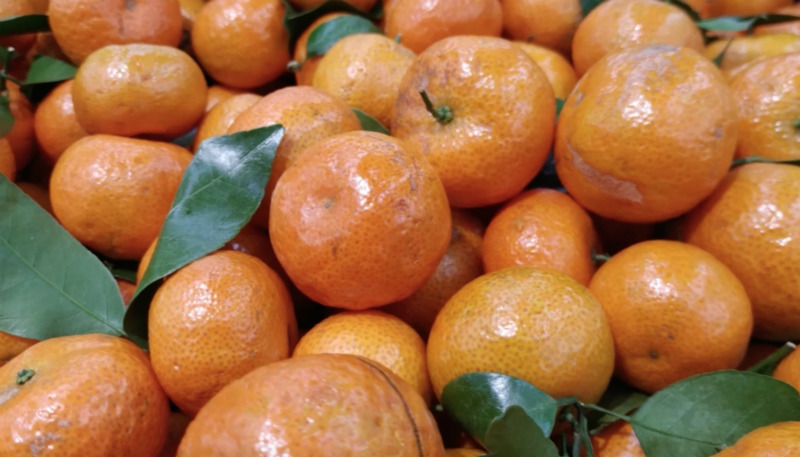
Don't wear white or black
People traditionally wear white or black to funerals so both are typically seen as colors of mourning. It's also a good idea to leave your old clothes in the wardrobe, with many people still preferring to buy new clothes to wear on New Year's Day.
Do wear red for luck
As already mentioned, red is a lucky color in China. For this reason, Chinese brides often choose to wear red on their wedding day. If you've been invited to a gathering over Spring Festival and you aren't sure what to wear, red is a safe bet.
Don't eat porridge for breakfast

Eating porridge, or anything watery for that matter, for breakfast on New Year's Day was looked down on by previous generations in some parts of China. In the olden days, porridge (rice mixed with water) was seen as a poor man's food, and eating it for breakfast on the first day of the new year could bring poverty into the coming year. Best to stick to something a little more filling!
Do eat dumplings, fish and other traditional foods
Don't worry; you won't miss that bowl of porridge. Spring Festival is a time for delicious food, and there are many tasty treats to choose from that bode good luck. Dumplings, for example, are very popular in Northern China as they were traditionally made to look like gold ingots, ancient Chinese money. Moreover, in Chinese, the word dumpling (饺子, jiaozi)sounds like the word 交子 (jiaozi), which means the exchange between the old and new year. According to legend, the more jiaozi you eat, the richer you will become in the New Year.
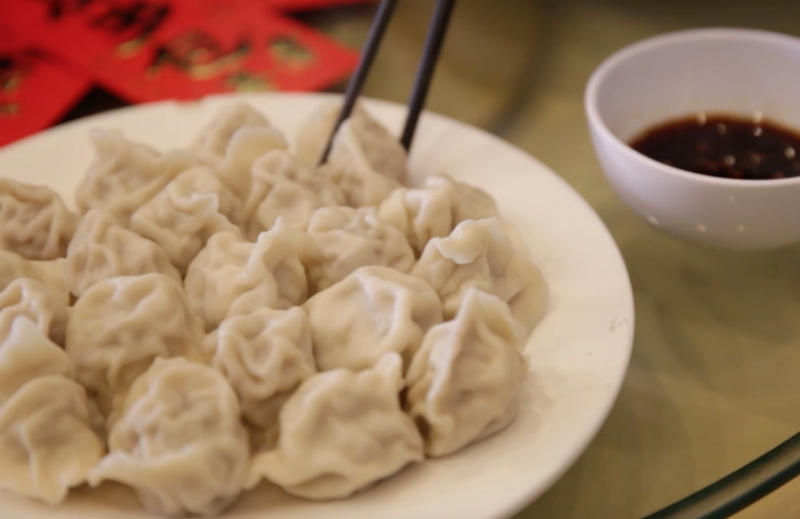
In southern China, people prefer to eat Tangyuan, otherwise known as glutinous rice balls, which are said to signify family togetherness and completeness. You can find more about the different traditional foods and their significance by checking out our custom menu here.
Don't miss out on the celebrations!
Above all, don't miss out on the festivities. There are fairs, fireworks, good food and celebrations all over the country, not to mention in many cities across the rest of the world, including Sydney, Lon-don, San Francisco and this year, for the first time, Edinburgh.
Happy Spring Festival from everyone here at People's Daily Online and we wish you luck and hap-piness in the Year of the Pig!


 Award-winning photos show poverty reduction achievements in NE China's Jilin province
Award-winning photos show poverty reduction achievements in NE China's Jilin province People dance to greet advent of New Year in Ameiqituo Town, Guizhou
People dance to greet advent of New Year in Ameiqituo Town, Guizhou Fire brigade in Shanghai holds group wedding
Fire brigade in Shanghai holds group wedding Tourists enjoy ice sculptures in Datan Town, north China
Tourists enjoy ice sculptures in Datan Town, north China Sunset scenery of Dayan Pagoda in Xi'an
Sunset scenery of Dayan Pagoda in Xi'an Tourists have fun at scenic spot in Nanlong Town, NW China
Tourists have fun at scenic spot in Nanlong Town, NW China Harbin attracts tourists by making best use of ice in winter
Harbin attracts tourists by making best use of ice in winter In pics: FIS Alpine Ski Women's World Cup Slalom
In pics: FIS Alpine Ski Women's World Cup Slalom Black-necked cranes rest at reservoir in Lhunzhub County, Lhasa
Black-necked cranes rest at reservoir in Lhunzhub County, Lhasa China's FAST telescope will be available to foreign scientists in April
China's FAST telescope will be available to foreign scientists in April